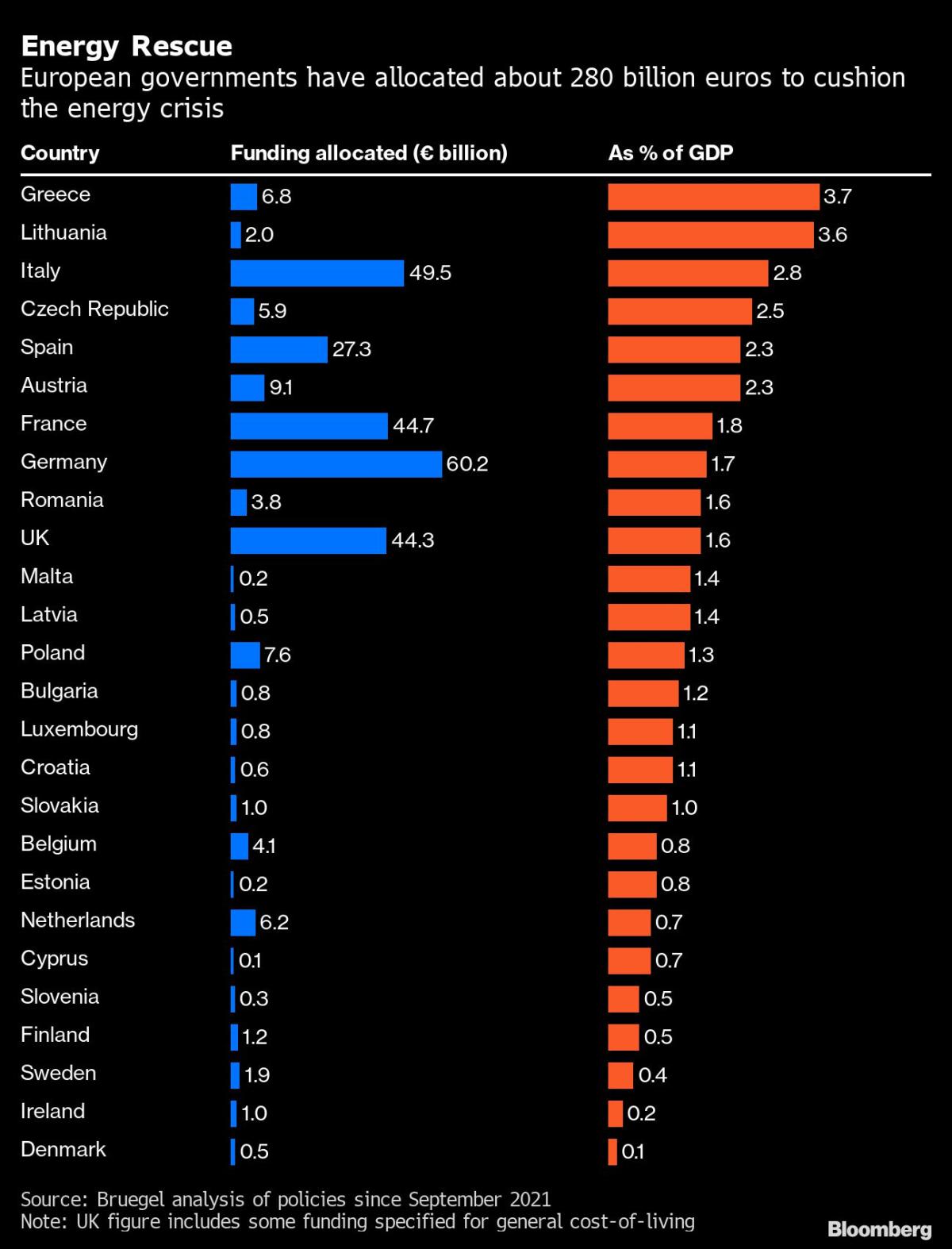
(Bloomberg) — European governments have allocated about 280 billion euros ($278 billion) in funding to cushion the impact of the energy crisis on households and businesses.
Most Read from Bloomberg
The funding, calculated by Brussels-based Bruegel think tank, measures fresh allocations since September, and covers everything from subsidizing tariffs for small businesses in Greece to direct payouts to consumers in Belgium. Some of the money hasn’t yet been spent.
“Prices will stay high throughout the winter and governments should work with the worst-case scenario assumption that they will not go away even after that,” said Giovanni Sgaravatti, an analyst at Bruegel. “Governments should focus on reducing energy demand where possible.”
Wholesale energy prices have soared to more than 10 times their seasonal average over the past five years as Russia squeezes natural gas flows to Europe. That’s hitting economic output across the continent, with heavy industry under pressure. Consumers are facing a cost-of-living crisis, with household bills in the UK set to triple.
Read: Surviving Energy Bills Forces Drastic Steps by UK Businesses
The hit to governments comes as soaring inflation lowers living standards. UK inflation could pass 18% in January for the first time in half a century because of rocketing energy prices, Citigroup Inc. said this week.
“Europe’s policymakers have responded to the energy cost surge mostly with broad-based, price-suppressing measures, including subsidies, tax cuts and price controls,” IMF experts Olya Celasun, Dora Iakova and Ian Parry wrote this month, saying the measures delay the needed adjustment to conserve energy. “It keeps global energy demand and prices higher than they would otherwise be.”
Most Read from Bloomberg Businessweek
©2022 Bloomberg L.P.




